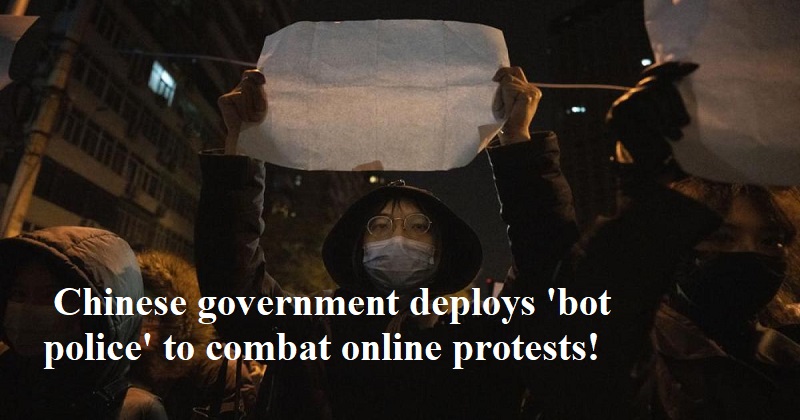
In order to manage the narrative around the huge protests against the government’s ‘zero Covid’ policy, Chinese netizens and cyberspace authorities are entangled in their dragnet of monitoring. After widespread demonstrations in more than a dozen Chinese cities, the government has used artificial bots to stifle online opposition.
Even independent networks outside of China, like Twitter, are controlled with paid adverts including images of female models for people seeking for the postings in Mandarin while anti-government remarks are being banned on well-known Chinese social media platforms. Chinese social media has been purge of postings using the terms ‘protest’ or ‘riot,’ and certain films of ‘Xinjiang’ and ‘Beijing’ have also been blocked.
Following Thursday’s horrific fire tragedy, Chinese netizens started sharing available information and first-hand stories on social media. The publication of fake information resulted in the 10-day detention of a young Shuimogou District resident. The Urumqi Police said in a statement on November 25 that ‘the general public is requested to logically address the intricate network information, not to disseminate online misinformation and provocative statements’.
This comes after the tragic fire in Urumqi, where the rescue effort was hampered by Covid precautions like barriers and trucks. The wife of Zhao Lijian, a spokesman for the Chinese Ministry of Foreign Affairs, said protesters were circulating false information on her Weibo account. A popular Wechat article regarding China’s Covid rules recently posed some important issues by an unnamed author. Before it was removed, WeChat users extensively shared the item, according to a Bloomberg report. After receiving complaints, WeChat decided the post ‘violated relevant regulations,’ blocking the account that contained it and notifying users via pop-up message.
The owner of the website whatsonweibo.com, Manya Koetse, brought attention to the peculiar issue of Twitter spam when using Chinese-language search terms. She encountered unending streams of advertisements while trying to find the most recent postings on protests in Chinese. Additionally, India Today conducted a basic Chinese Twitter search for Urumqi, Beijing, Zhengzhou, and Guangzhou and discovered a flood of spam messages. These are the names of significant cities in China where recent violent demonstrations occurred.
Twitter posts with Beijing, Shanghai and other major cities where protests were held contained spam like tweets. The majority of these accounts are also spam. They tweet at a high, steady rate throughout the day, suggesting that these have been automated. These spam tweets are drowning the legitimate search results of the protest incidents.

Post Your Comments